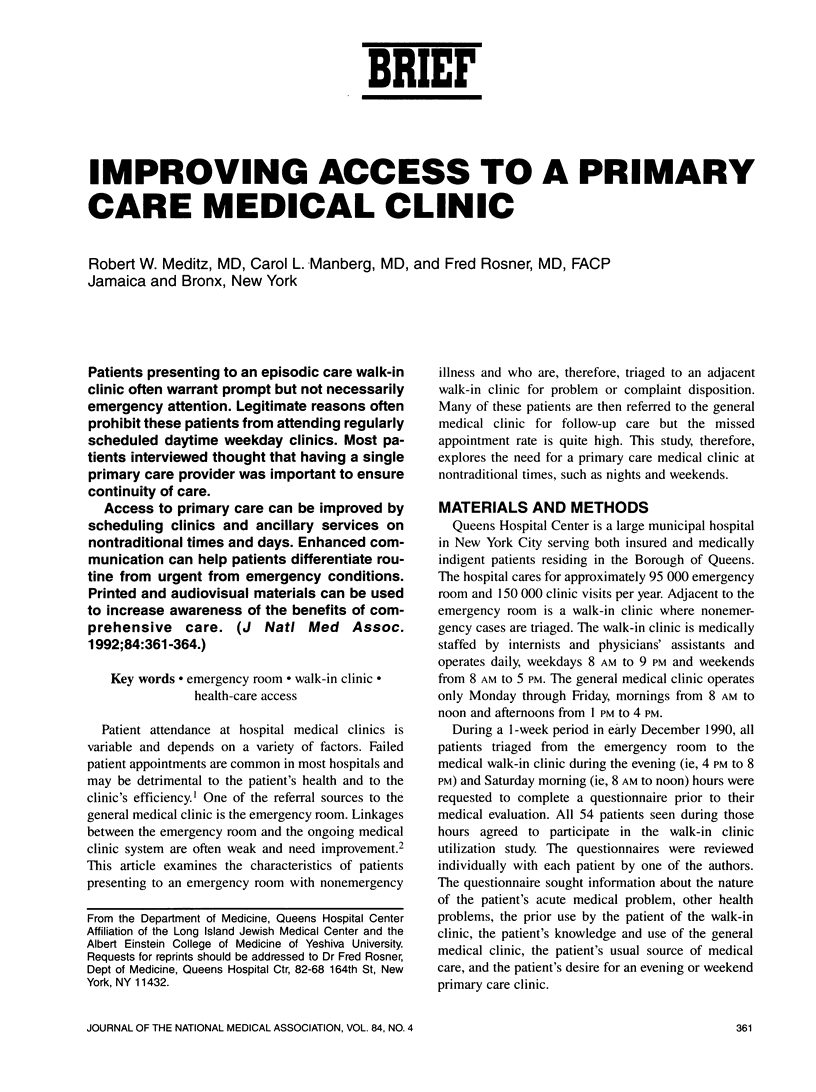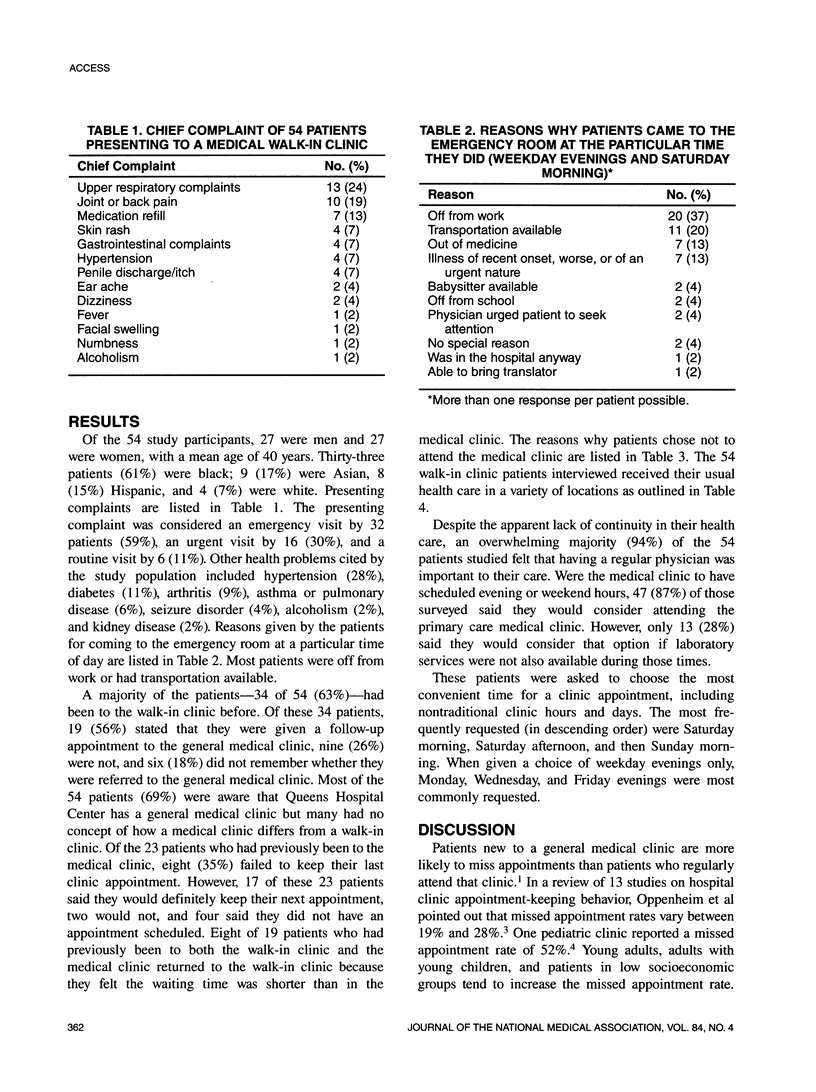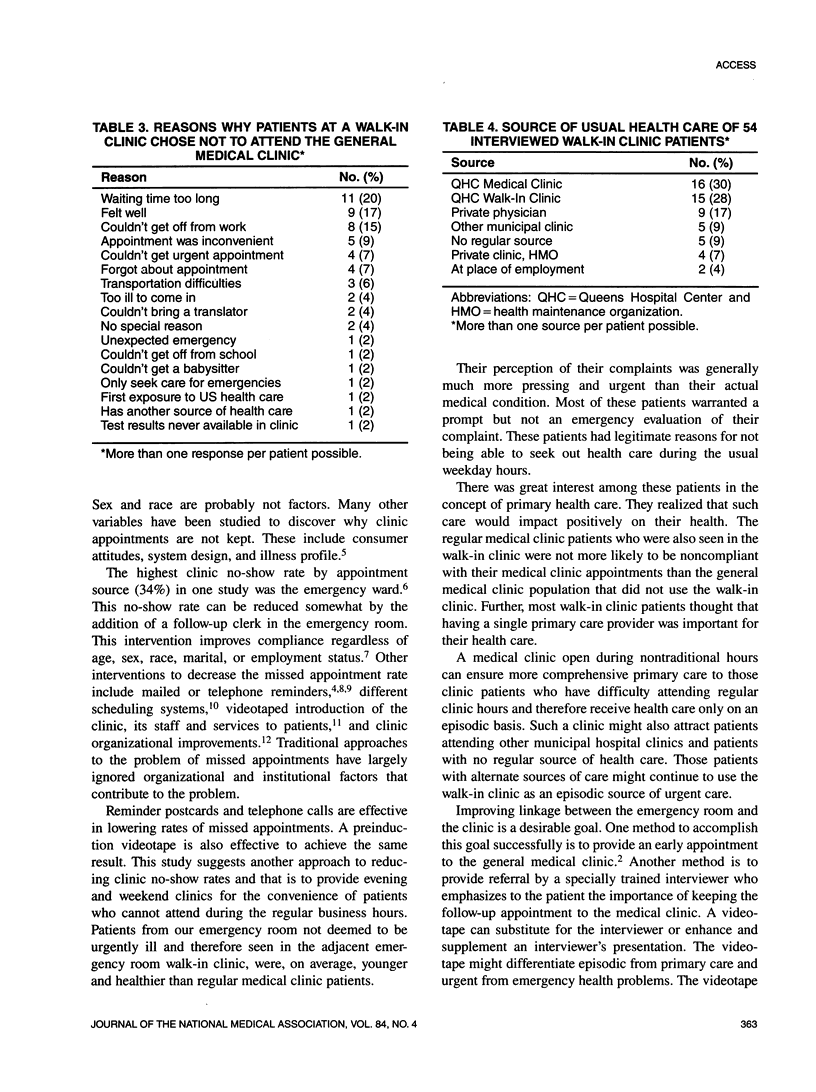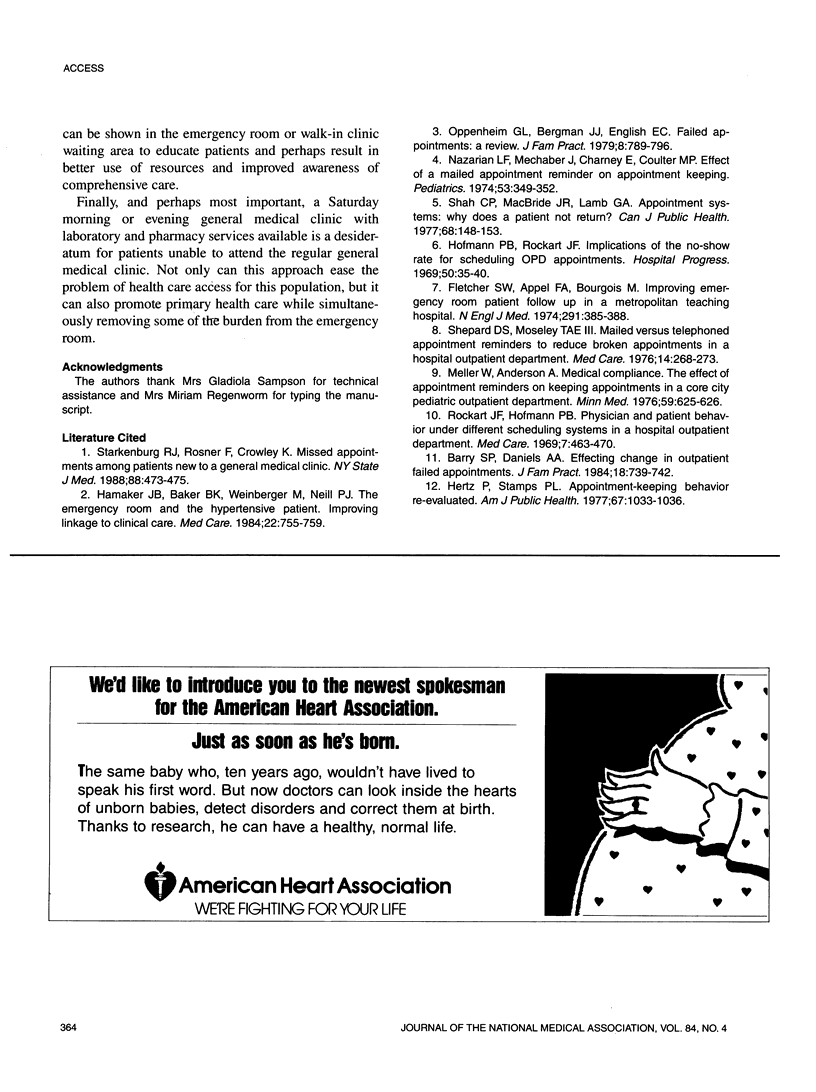Abstract
Patients presenting to an episodic care walk-in clinic often warrant prompt but not necessarily emergency attention. Legitimate reasons often prohibit these patients from attending regularly scheduled daytime weekday clinics. Most patients interviewed thought that having a single primary care provider was important to ensure continuity of care. Access to primary care can be improved by scheduling clinics and ancillary services on nontraditional times and days. Enhanced communication can help patients differentiate routine from urgent from emergency conditions. Printed and audiovisual materials can be used to increase awareness of the benefits of comprehensive care.
Full text
PDF



Selected References
These references are in PubMed. This may not be the complete list of references from this article.
- Barry S. P., Daniels A. A. Effecting change in outpatient failed appointments. J Fam Pract. 1984 May;18(5):739–742. [PubMed] [Google Scholar]
- Hamaker J. B., Baker B. K., Weinberger M., Neill P. J. The emergency room and the hypertensive patient. Improving linkage to clinical care. Med Care. 1984 Aug;22(8):755–759. doi: 10.1097/00005650-198408000-00007. [DOI] [PubMed] [Google Scholar]
- Hertz P., Stamps P. L. Appointment-keeping behavior re-evaluated. Am J Public Health. 1977 Nov;67(11):1033–1036. doi: 10.2105/ajph.67.11.1033. [DOI] [PMC free article] [PubMed] [Google Scholar]
- Meller W., Anderson A. Medical compliance. The effect of appointment reminders on keeping appointments in a core city pediatric outpatient department. Minn Med. 1976 Sep;59(9):625-6,659. [PubMed] [Google Scholar]
- Nazarian L. F., Mechaber J., Charney E., Coulter M. P. Effect of a mailed appointment reminder on appointment keeping. Pediatrics. 1974 Mar;53(3):349–352. [PubMed] [Google Scholar]
- Oppenheim G. L., Bergman J. J., English E. C. Failed appointments: a review. J Fam Pract. 1979 Apr;8(4):789–796. [PubMed] [Google Scholar]
- Shah C. P., MacBride J. R., Lamb G. A. Appointment systems: why does a patient not return? Can J Public Health. 1977 Mar-Apr;68(2):148–153. [PubMed] [Google Scholar]
- Shepard D. S., Moseley T. A., 3rd Mailed versus telephoned appointment reminders to reduce broken appointments in a hospital outpatient department. Med Care. 1976 Mar;14(3):268–273. doi: 10.1097/00005650-197603000-00008. [DOI] [PubMed] [Google Scholar]
- Starkenburg R. J., Rosner F., Crowley K. Missed appointments among patients new to a general medical clinic. N Y State J Med. 1988 Sep;88(9):473–475. [PubMed] [Google Scholar]


